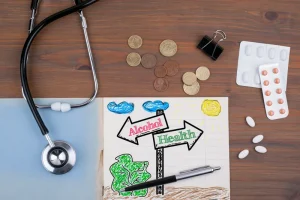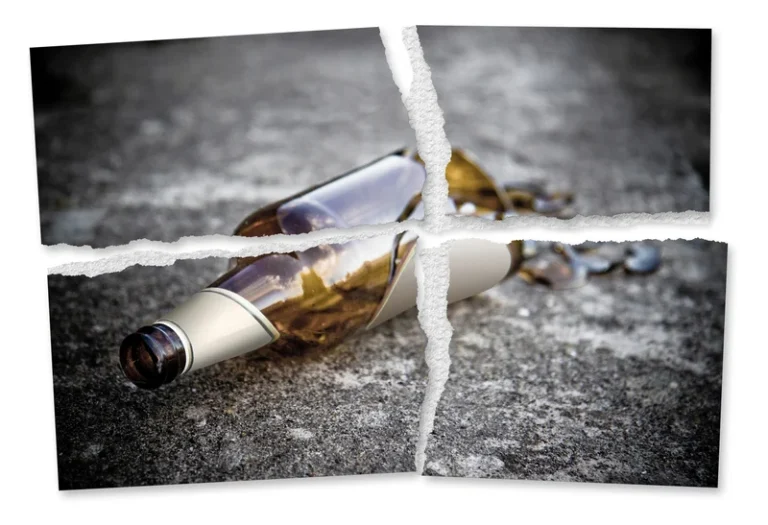
It could be anything from singing, painting, going on adventures, cooking, etc. For example, drumming has been used to complement addiction therapy when other counseling methods have failed. Find joy in those things again and live to steer yourself away from your withdrawal symptoms, triggers, and substance addiction. Spending time doing productive and sober activities will help you give a fresh start to yourself. It’s easier said than done, but a negative self-image starts with a pattern of negative thoughts about the self, so you want to try to think positively.

How do I handle social situations where drugs or alcohol are present?
However, the recovery journey also offers many opportunities for growth and transformation. Get started by speaking with one of our compassionate treatment specialists. A comprehensive health change won’t happen overnight, but over time, your tastes will change, and you’ll start craving healthy food. Next, you’ll begin to see extraordinary changes in appearance, immunity, energy level, and overall health.
- Reconnecting with family and friends who support your recovery goals can also strengthen your support system.
- Recovery community centers have emerged around the country, and through the employment linkages they offer, they can facilitate future orientation and new enthusiasm for life.
- Mindfulness training, a common component of cognitive behavioral therapy, can help people ride out their cravings without acting on them.
How To Rebuild a Healthy Life After Drug Abuse

If you’re new to goal setting, here is a quick breakdown of SMART goals and how you can maximize your chances of success.
Can yoga and meditation really help after addiction recovery?
Now that you are in an intensive outpatient program West Virginia, you won’t repeat the same mistakes again. Think of yourself, your spiritual existence, as an observer and passenger, connected to your brain and body. You experience thoughts and feelings, and you are aware of the world and the actions that you take in the world. According to some experts in neuroscience and spirituality, your conscious existence goes beyond the functioning of your physical brain.
These connections anchor an individual’s commitment to their sober narrative. Support can also extend to self-help literature, online forums, and holistic approaches like yoga or acupuncture. Openness to diverse modes of support can significantly enrich an individual’s toolkit for navigating the ups and downs of the recovery journey. Learning new skills, reconnecting with old interests, and pursuing hobbies foster a forward-looking perspective.

- Chances are, you’d be surprised to see the difference sleeping for eight hours every night can make.
- “It’s really an ingenious method to make sure that no matter what we do, that’s pleasurable. It doesn’t last very long and it’s followed by pain so that immediately we’re searching again,” she explains.
- This won’t just go a long way in mending relationships but will also have the added advantage of helping you feel better about yourself too.
- Research approximates that it takes days for an individual to form new habits and integrate them into their regular routines.
- It is often a long and bumpy path, and relapse is nearly inevitable—but that doesn’t spell the end of recovery.
It may sound a bit mundane, but trust us, it’s like the scaffolding that holds up a skyscraper. Solidifying new habits for your sober lifestyle is essential to achieve lasting success—the bedrock of a stable foundation. This stability empowers individuals to develop self-discipline, enhance their mental health, https://ecosoberhouse.com/ and bolster their overall well-being. Professional help provides a safe space and necessary tools to address the underlying issues that led to addiction in the first place. It can also help you develop healthy coping mechanisms to manage stress, triggers, and other challenges with addiction recovery.
Better Sleep
While relapse is a common concern in recovery, it’s essential to understand that it’s not an inevitable part of the journey. By building resilience and developing effective coping strategies, you can significantly reduce the risk of relapse and maintain your commitment to sobriety. Recovery from addiction is not solely a physical process; it also involves nurturing your mental and emotional well-being. By cultivating a sense of inner peace rebuilding your life after addiction and emotional stability, you’ll be better equipped to navigate the challenges that may arise during your recovery journey. Practices like yoga and mindfulness have been shown to significantly reduce cortisol levels and depressive symptoms, highlighting their importance in mental and emotional well-being during recovery. Studies indicate that adequate sleep supports immune function and mental health, crucial for recovery from addiction.
With determination and a focus on self-care, individuals can flourish in their recovery and pave the way for a brighter future. Recovery from substance abuse and addiction treatment is a life-changing experience. Still, it also involves creating a new normal, which includes changing thought and behavior patterns, creating healthier relationships, and finding new ways to cope with stress and challenges. This new normal is crucial for long-term recovery, as it helps individuals develop a healthy sense of self, identify triggers, and develop effective coping mechanisms. The most critical step to follow after addiction treatment with Lantana is to identify your life goals and set about following them. These goals can be anything from continuing your education to rebuilding relationships with family members and friends.